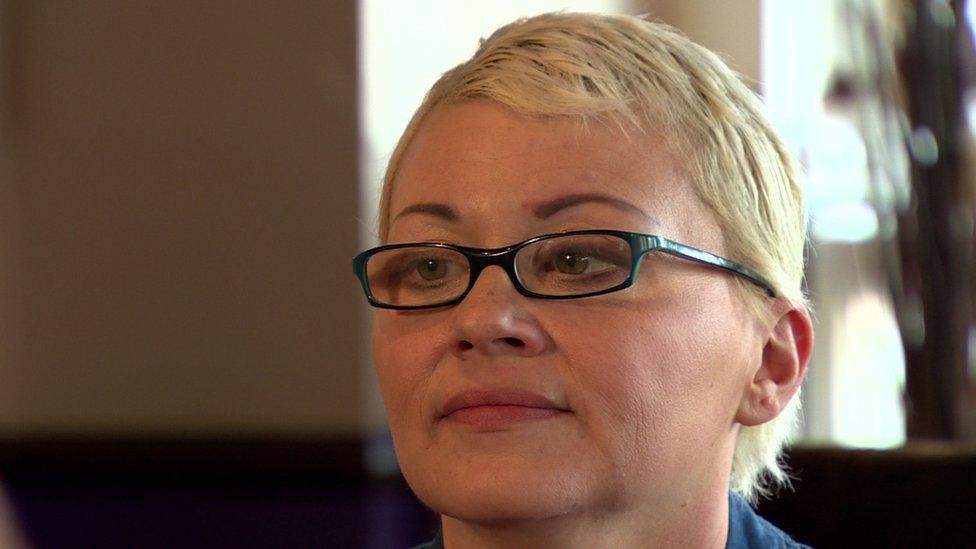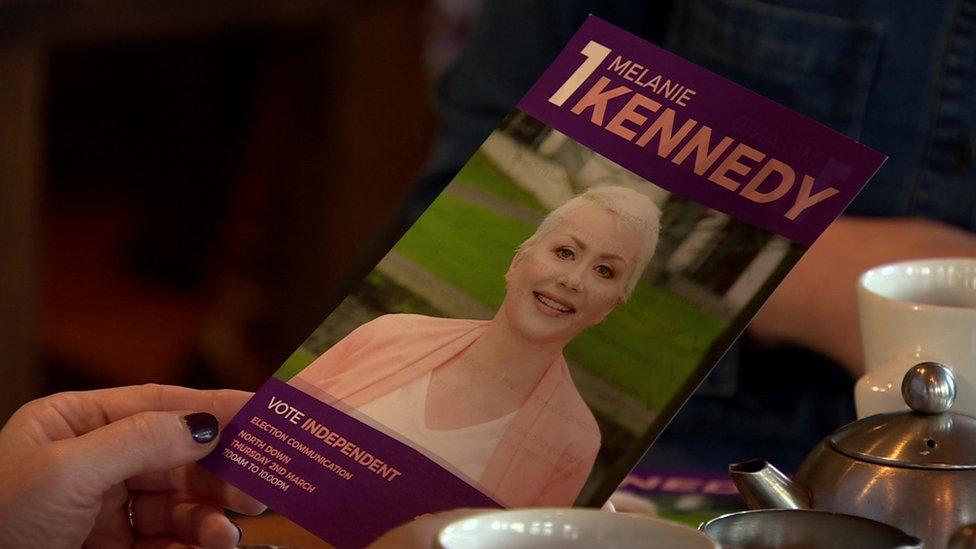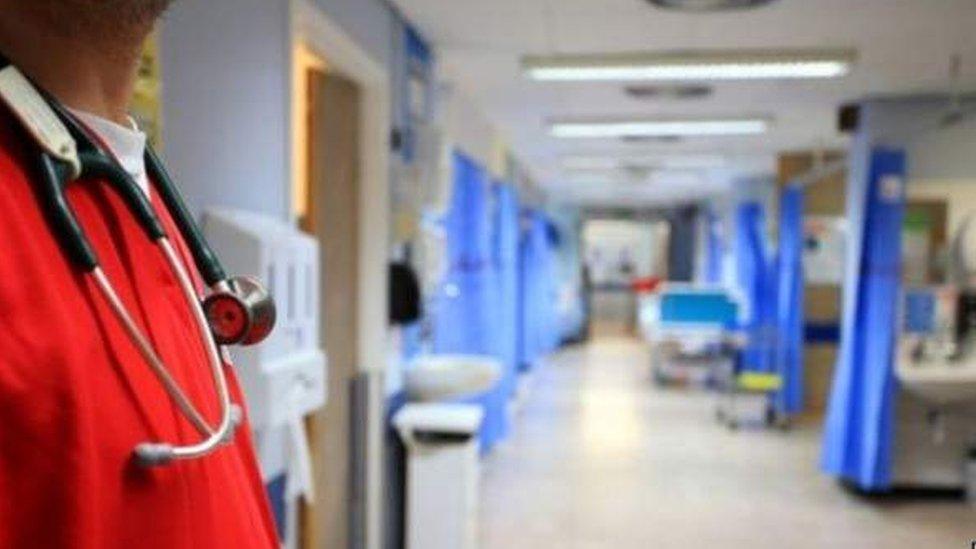Woman with terminal cancer feels 'abandoned by Stormont'
- Published

A woman with terminal cancer has said she feels people like her have been abandoned by politicians at Stormont.
Melanie Kennedy felt so strongly about the state of the health service and lack of stable government that she ran as an independent candidate in last's week's election.
The mother of two polled 1,246 first preference votes in North Down.
She said it showed that ordinary people are concerned about issues like cancer drugs, waiting lists and mental health.
"With no government and no health minister - it makes me feel like there's no-one there to fight my corner. It's heartbreaking," she said.
'Driven to this'
Ms Kennedy made her comments as a number of health organisations warned that the continuing political impasse is preventing vital health and social care decisions being made.
The County Down woman was first diagnosed with breast cancer in 2013. While she was initially optimistic about her recovery, she has since been told by doctors that the cancer has spread to her liver and that her condition is terminal.
This experience and finding out that patients in Northern Ireland cannot access the same specialist drugs as those in England drove her to political action, despite her illness.
"For someone in my situation who is on quite harsh treatment, I was driven to this - it took a lot for me to act and create a campaign, but I felt I had to try and fight for justice for cancer patients," she said.

The mother of two polled 1,246 first preference votes in North Down
Ms Kennedy said while the election process took a lot out of her, she has no regrets about standing as a candidate.
"People wanted to talk about real issues such as the health service, education for their kids. While legacy issues are also important, so is the here and now," she said.
Ms Kennedy said that while the politicians talk, patients are being let down.
"The health service in Northern Ireland was already behind other parts of the UK, there was a lack of long-term stability and strategy and now we're back to square one. It is the ordinary people like me who are suffering."
She said time is a luxury that she and other people who are terminally ill cannot afford.
"The reason I started all this was that I asked myself, 'where do I turn?'
"I could be told in the next couple of months, there's no more treatment for me and I should go home and make my plans and say good goodbye to my children," she said.
"It's almost negligent that there is no cancer strategy from the politicians here in Northern Ireland. Early treatment is critical - it can mean the difference between getting well and going on with your life and ending up in my shoes. I don't want anyone else ending up in my shoes."
- Published9 March 2017
